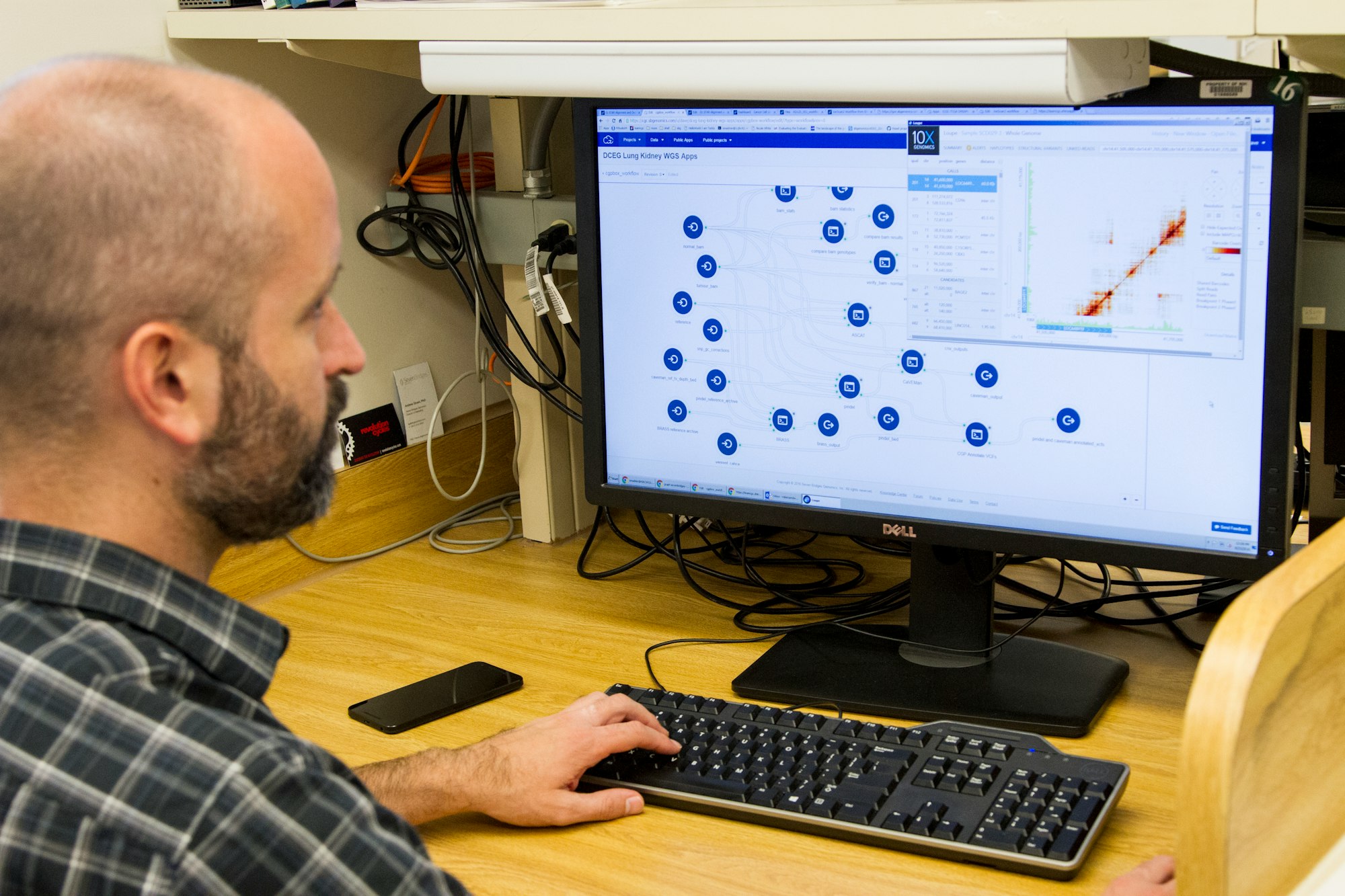Five in-demand lucrative tech careers in 2023

Technology is gradually becoming the gateway to exploring the world. Its professions are providing endless possibilities, sustainable means of income and a wide learning experience as it evolves.
There are so many in-demand tech careers to choose from but today, we are narrowing it to five in-demand tech careers. So, if you are unsure of what tech career to venture into or switch, this article is for you.
Here are four in-demand tech careers in 2023.
1. Full-Stack Developers

Full-stack developers are software engineers who have expertise in both front-end and back-end web development. In other words, a full-stack developer can build an entire web application from the front-end user interface to the back-end server-side logic and database.
The front end of a web application is the part that the user interacts with, such as the layout, design, and functionality of the website. A full-stack developer should be proficient in HTML, CSS, and JavaScript, as well as popular front-end frameworks like React, Angular, or Vue.
The back end of a web application is the part that runs on the server and handles the business logic and database management. A full-stack developer should be proficient in at least one back-end programming language like Java, Python, or Ruby, as well as popular back-end frameworks like Node.js, Django, or Ruby on Rails.
In addition to these technical skills, a full-stack developer should also be proficient in software development methodologies, version control, and project management. Full-stack developers are highly versatile and can work on all aspects of a web application, from the design to the deployment.
They are in demand and also earn an average salary per annum of $85,469 in the U.S., CAD$120,550 in Canada, £67,702 in the UK, S$64,800 in Singapore and ₦1,572,072NGN in Nigeria, according to salary data estimates.
2. Blockchain Web Developers

Blockchain web developers is a software engineer who specializes in developing decentralized applications (dApps) and smart contracts on blockchain technology. They have expertise in blockchain development frameworks and tools such as Ethereum, Hyperledger, Solidity, Web3.js, Truffle, and Remix.
The role of a blockchain web developer involves designing, developing, testing, and deploying decentralized applications that run on a blockchain network. They use blockchain technology to create secure, transparent, and immutable decentralized systems for various industries such as finance, healthcare, supply chain, and gaming.
To become a blockchain web developer, one needs to have a strong understanding of blockchain technology, distributed systems, cryptography, and programming languages such as Java, Python, and JavaScript. They should also be familiar with blockchain development tools and frameworks and have experience in developing decentralized applications and smart contracts.
Blockchain web developers are in high demand due to the increasing popularity of blockchain technology in various industries. They work in a fast-paced environment and are constantly learning and adapting to new technologies and frameworks.
Their average earnings per annum are $175,000 in the U.S., CAD$110,000 in Canada, £99,700 in the UK, S$180,000 in Singapore and ₦3,288,400NGN in Nigeria, according to salary data estimates.
3. Software Engineers

Software engineers are professionals who design, develop, test and maintain software applications, systems, and products. They are responsible for the entire software development life cycle, from the initial planning and requirements gathering to the deployment and maintenance of the software.
Software engineers use various programming languages, tools, and frameworks to create software applications that solve complex problems and meet the needs of businesses and individuals. They work in various industries such as finance, healthcare, gaming, e-commerce, and technology, and collaborate with other professionals such as project managers, designers, and quality assurance engineers to deliver high-quality software products.
To become a software engineer, one typically needs a degree in computer science or a related field and proficiency in programming languages such as Java, Python, C++, or JavaScript. They should also know software development methodologies, version control, and project management.
Software engineers are highly valued in the technology industry and are in high demand due to the growing need for software applications in various industries. They are constantly learning and adapting to new technologies and frameworks to keep up with the rapidly changing technology landscape.
Software engineers are highly sought after with average earnings per annum of $144,435 in the U.S., CAD$132,589 in Canada, £49,190 in the UK, S$119,754 in Singapore and ₦3,097,787NGN in Nigeria, according to salary data estimates.
4. Data Scientists

Data scientists are professionals who use statistical and computational techniques to extract insights and knowledge from data. They work with large and complex data sets to identify patterns, trends, and relationships that can help businesses make informed decisions.
Data scientists use various tools and technologies such as statistical models, machine learning algorithms, data visualization tools, and programming languages such as Python and R to analyze and interpret data. They also work with data engineers and software developers to develop scalable data pipelines and infrastructure for data analysis.
The role of a data scientist involves collecting, processing, and cleaning data, exploring and analyzing data using statistical models and machine learning algorithms, and presenting insights and findings to stakeholders clearly and concisely. Data scientists work in various industries such as healthcare, finance, e-commerce, and technology and collaborate with other professionals such as business analysts, data engineers, and software developers.
To become a data scientist, one typically needs a degree in computer science, statistics, mathematics, or a related field, and experience with programming languages, data analysis tools, and statistical modeling. Data scientists should also have strong communication skills and the ability to translate complex data into actionable insights for business stakeholders.
Data scientists are in high demand due to the increasing availability of data and the need for businesses to make data-driven decisions. They are constantly learning and adapting to new technologies and methodologies to keep up with the rapidly evolving field of data science.
Data scientists are becoming the next big things and currently, they earn $130,556 in the U.S., CAD$88,924 in Canada, £49,703 in the UK, S$70,800 in Singapore and ₦3,097,787NGN in Nigeria, according to salary data estimates.
5. Machine Learning Engineers

A Machine Learning Engineer is a professional who is skilled in applying machine learning techniques and algorithms to create predictive models and solutions to complex problems. They typically work on designing, building, testing, and deploying machine learning models, and ensuring that the models are accurate, scalable, and robust enough to be used in real-world applications.
A Machine Learning Engineer is responsible for selecting appropriate data sets, designing and implementing algorithms, and creating infrastructure for training and testing models. They also need to be able to evaluate the performance of the models and fine-tune them as needed. The role requires a deep understanding of machine learning algorithms, software engineering, and data structures, as well as proficiency in programming languages like Python, Java, or C++.
To become a Machine Learning Engineer, individuals typically need a strong foundation in computer science and mathematics, including probability, statistics, linear algebra, and calculus. They may also have experience working with machine learning frameworks such as TensorFlow, PyTorch, or Scikit-Learn, and be familiar with cloud computing platforms like AWS, Azure, or Google Cloud Platform.
Machine Learning Engineers are in high demand across a variety of industries, including finance, healthcare, e-commerce, and tech. Their work plays a critical role in enabling organizations to make data-driven decisions and develop new products and services based on machine learning insight.
Machine learning engineers currently earn $155,206 in the U.S., CAD$105,087 in Canada, £152,381 in the UK, S$100,000 in Singapore and ₦6,035,000NGN in Nigeria, according to salary data estimates.
In summary, you can learn either of these skills and become an expert in any of the aforementioned tech skills.






